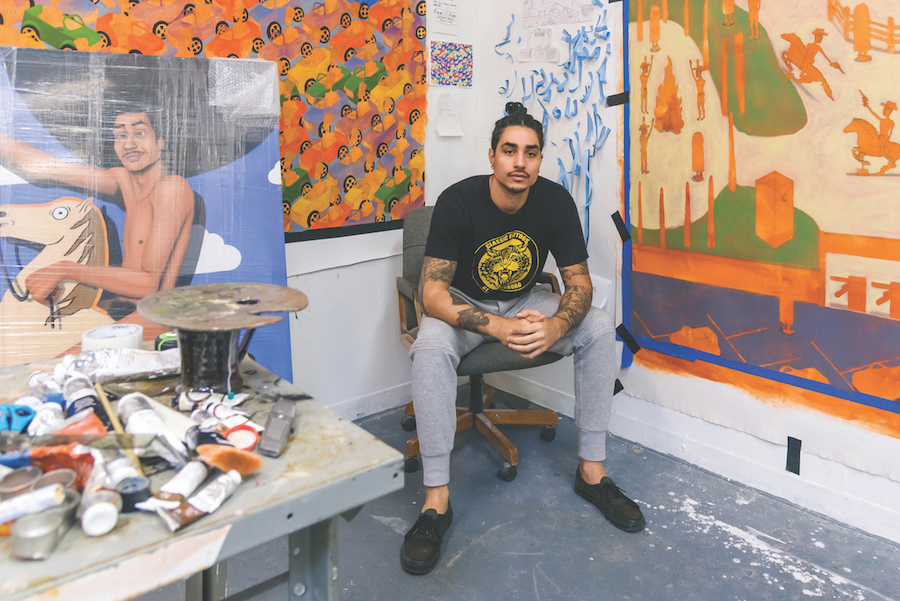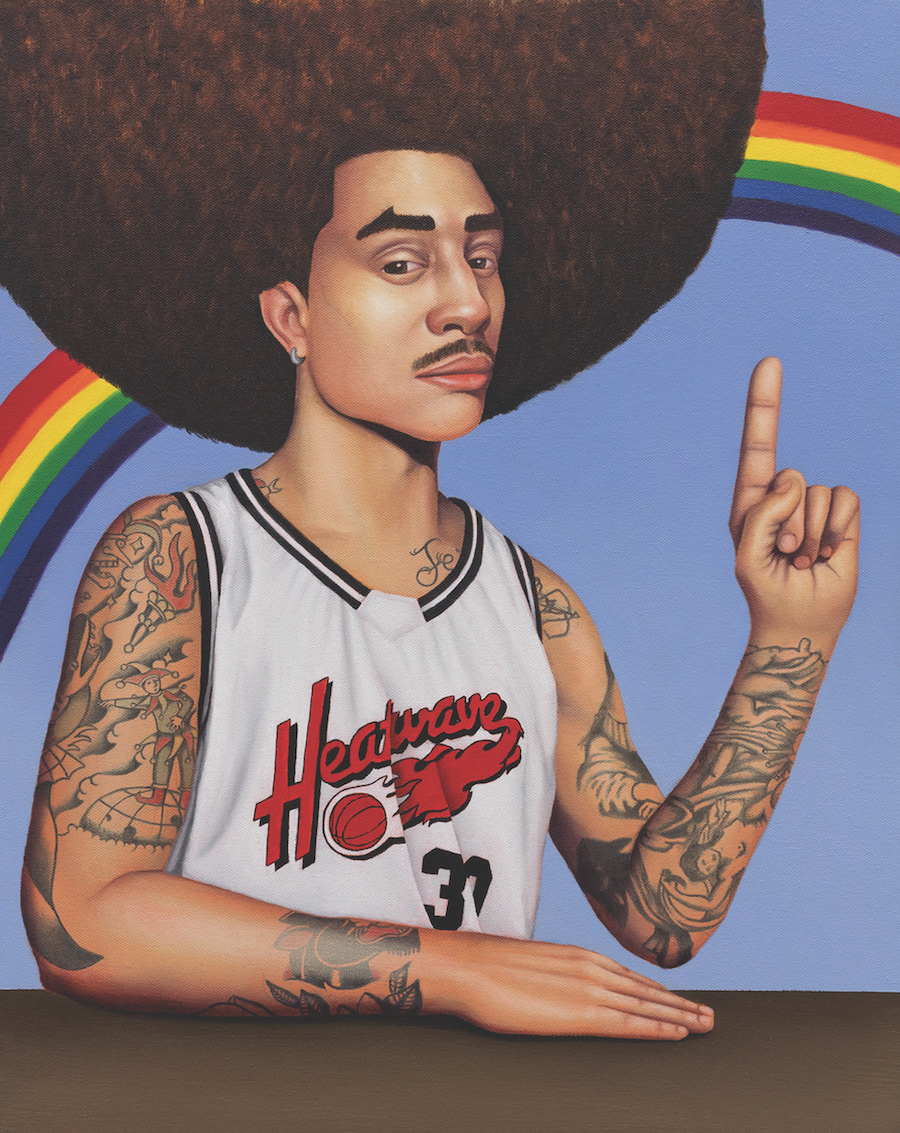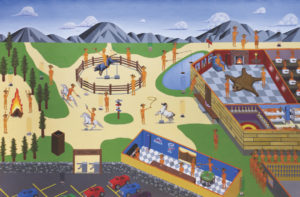
It’s unusual for an accomplished artist to want to share with the public not only completed, polished work but also works-in-progress and even notes, sketches, and inspirations, offering an intimate look at the artist’s practice. But that’s exactly what visual arts fellow Jake Troyli is planning to do Friday evening at his Fine Arts Work Center studio, instead of the usual exhibit of new work at the Hudson D. Walker Gallery.
“I decided to do an open studio, because it’s a different level of context,” he says. “It’s sort of like you’re walking directly into my head.” He laughs.
Having spent his early childhood in St. Petersburg, Fla., Troyli moved to Boston with his mother, also an artist, at age nine, and completed his M.F.A. from the University of South Florida last year. This past summer, he attended the Skowhegan School of Painting & Sculpture in Maine, then took up residence as a fellow at FAWC. He’s currently working on paintings for an upcoming solo show at Monique Meloche Gallery in Chicago.
“There are paintings in my studio right now that are finished, there are paintings that are 75 percent done, and then there are paintings that are 15 percent to 20 percent complete. I think that will be interesting for the viewer,” Troyli says. He tends to work on up to 15 paintings in a variety of dimensions at the same time. “I like to be able to move from painting to painting, so that I don’t ever feel that I’m getting exhausted with a single piece. They all come together concurrently.”
The walls of Troyli’s studio are covered in written notes and what he calls a “visual diary” of sketches, drawings, and images that he came across and finds interesting, all of which eventually work themselves into his paintings. “I draw inspiration from everywhere at all times,” he says. “When I’m in a new place, I respond to the environment.” Troyli calls the landscape around him a “temporary permanent” that he can’t help but react to.

“Especially with my self-portraiture, I feel that it just makes sense for the work to reflect the space I’m in,” he says. “You’re sort of manipulating and contorting yourself to fit into your new surroundings. It becomes a monument to time spent, in some way.”
For Troyli, interactions of time and place are always evolving. “I’ve been thinking a lot about identity as performance, and so I think a lot about the self, and the idea of the self, as an elastic thing,” he says. “By using my own form as a sort of malleable avatar, and appropriating motifs from both the classical and the comic, my paintings can exist in a space that defies and subverts immediate assumption and can challenge the relationship the viewer has with them.”
At six-foot-nine, Troyli understands the challenges of fitting into spaces, and as a basketball player in college, he has also experienced “the act of being observed,” he says. “While I was playing basketball, I started to think of this in terms of life, about how the crowd is paying to watch, even feels entitled to watch the players, and how the players essentially are working for the crowd. I think my basketball career, in retrospect, made me really critical of the audience-spectacle relationship. There is a tension there that I think about a lot in my art.”
This is true in his self-portraits and also in works with grander vistas, such as High Noon at Ranchland®, which takes a voyeuristic point of view of dozens of naked cowboys in what appears to be a Western theme park. “With the large-scale work in particular, I think of those figures as being almost at the mercy of the person looking at the work,” Troyli says. “There are these intimate moments that you have access to, because I chop off the top of the building so you can see everything happening inside. It becomes like an ant farm, in a way.”

Being at the work center in Provincetown, Troyli says, has affected not only his work but also his productivity. “I’ve had the space and time to just put my head down and paint. And the cold, silence, and solitude have added reasons to work. I already have a borderline obsessive work ethic, and this place has just magnified that. As much as I love to procrastinate, in a space like this, even that becomes hard to do. It’s been amazing and incredibly challenging all at once.”
A Room With a View
Due to public health concerns, all open studios, gallery events, and readings at the Fine Arts Work Center have been cancelled through the end of April.



